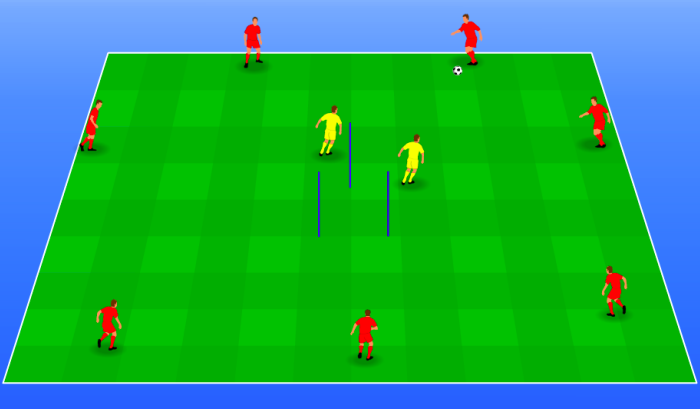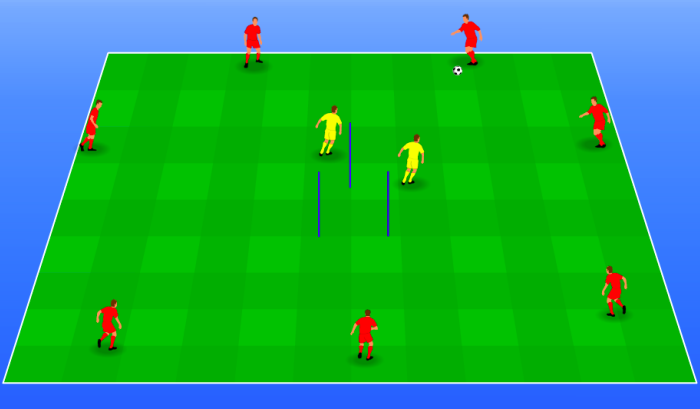Six main advantages of using principles of play

Principles of play are best described as tactical references that help players in their decision-making. A principle of play is applicable in every situation in the game. Nowadays, more and more teams use them as their tactical compass. What main advantages does implementing principles of play offer the team?
Principles of play
Below, you’ll find different examples of principles of play within each phase of the game.
- Defending: ‘When the ball moves, the team moves in the same direction.’
- Defending: ‘We close the centre and force the opponent to the wing.’
- Offensive transition: ‘If we win possession, we immediately look for a vertical pass.’
- Attacking: ‘We create an overload in the zone of the ball to have a free man.’
- Attacking: ‘We vary with deep runs and movements towards the ball.’
- Defensive transition: ‘The player closest to the bal immediately presses aggressively.’
Main advantages
Implementing those principles of play has several advantages. Below, you’ll find the six most important ones.
1. Easier to remember for players
In general, coaches are very committed to football. They have a lot of experience and have put a lot of thought in many different situations. This is not the same for players. Principles of play offer them very basic and clear tools in their decision-making and therefore create a lot of clarity.
2. Principles are independent of opponents
The most basic characteristic of a principle of play is that it is always applicable, in every situation. That makes it independent of the formation and tactics of the opponent. Whatever the opponent does and whatever the game offers, such as a sending off or a late lead to defend, the principles always apply.
3. Using different formations
A team that doesn’t execute clear principles of play, is dependent of a formation and the patterns within this formation for their tactical game plan. That makes it a much bigger step to change a formation. When the principles are clear and well-executed, that provides the opportunity to vary more with the formation. This could be useful to surprise an opponent or to adapt to injuries or suspensions.
4. Game realistic drills
Not a lot of coaches have 22 players at their disposal in every training session. Therefore, tactical drills are often performed in lower numbers, such as 8v7 or 4v4 + 2GK. In those simplified game situations, not all the formations and patterns still apply. But the principles of play are still there to execute. In a 3v3 + 2GK, it is still important to close the centre, to press aggressively after loss of ball possession or to vary between deep runs and movements towards the ball.
A good example of a training drill that is suitable for the principle of play 'close the centre' is a rondo with three sticks in the middle (see below). The defending duo hunts for the ball without giving up the passing lane through the centre.
5. Brief coaching points
Most of the times, coaches have a hard time influencing their players during games. They are very focused on the game that keeps on going and in professional football, the crowd limits the transfer of information too. When the principles of play are very clear, it means that coaches can use only brief coaching points such as ‘Close the centre’ or ‘Deep runs’. This improves the transfer of information within games.
6. Long-term game plan
Specific instructions and tactical twists in a single game can be very effective, but mostly for that specific match. There is not a long-term gain, because every match is different. By developing the execution of the principles of play by the players, they improve in a sustainable way. Those principles are still useful a week, month or year from now.
A good example of a drill to close the
